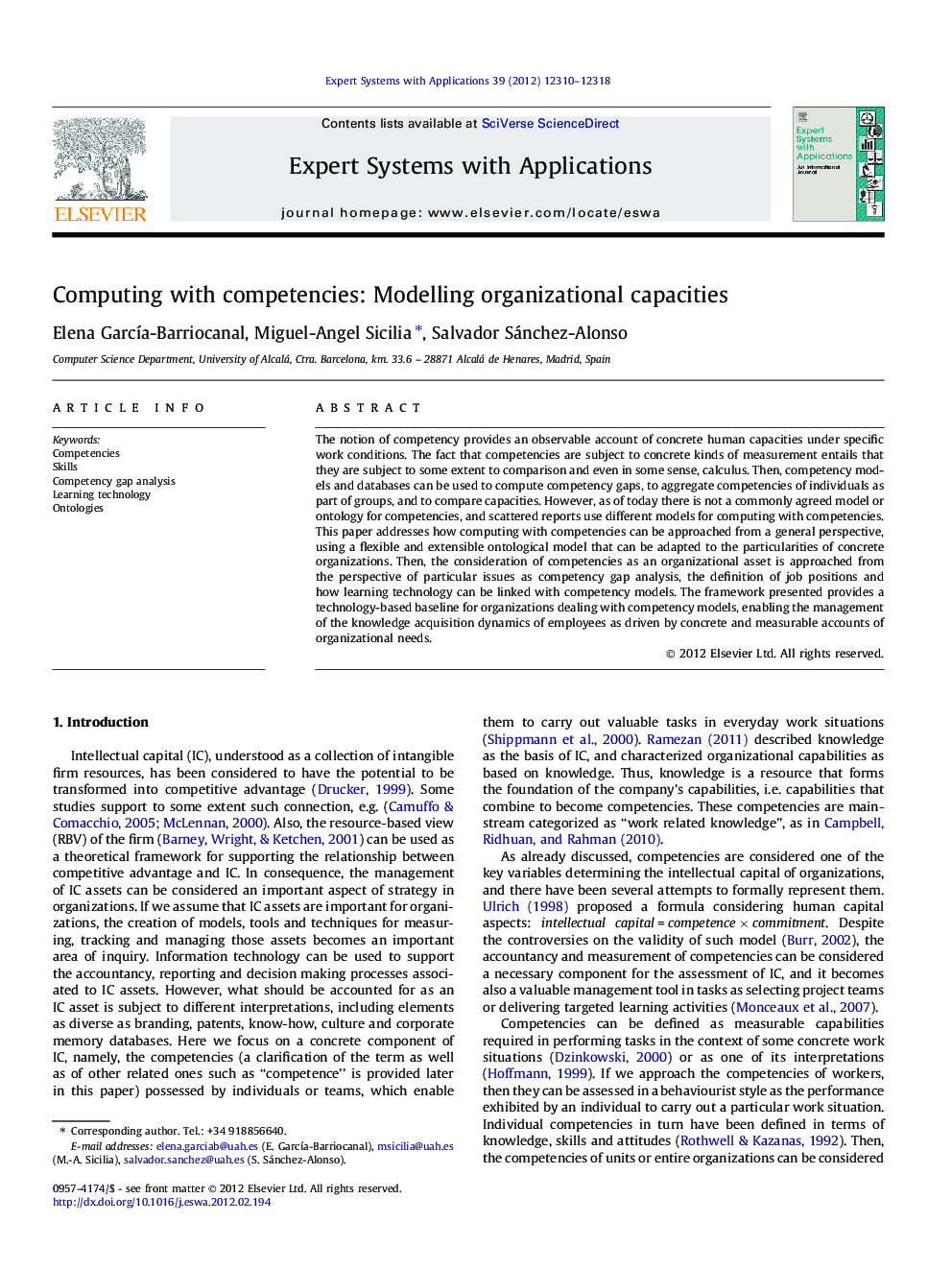| Article ID | Journal | Published Year | Pages | File Type |
|---|---|---|---|---|
| 384442 | Expert Systems with Applications | 2012 | 9 Pages |
The notion of competency provides an observable account of concrete human capacities under specific work conditions. The fact that competencies are subject to concrete kinds of measurement entails that they are subject to some extent to comparison and even in some sense, calculus. Then, competency models and databases can be used to compute competency gaps, to aggregate competencies of individuals as part of groups, and to compare capacities. However, as of today there is not a commonly agreed model or ontology for competencies, and scattered reports use different models for computing with competencies. This paper addresses how computing with competencies can be approached from a general perspective, using a flexible and extensible ontological model that can be adapted to the particularities of concrete organizations. Then, the consideration of competencies as an organizational asset is approached from the perspective of particular issues as competency gap analysis, the definition of job positions and how learning technology can be linked with competency models. The framework presented provides a technology-based baseline for organizations dealing with competency models, enabling the management of the knowledge acquisition dynamics of employees as driven by concrete and measurable accounts of organizational needs.
► We review the current state of competency models and the needs for more complex competency schemas. ► We present a general model for expressing competencies and how it is expressed in the form of an ontology. ► We describe how that model can be used for different tasks involving computation and inference with competencies.
